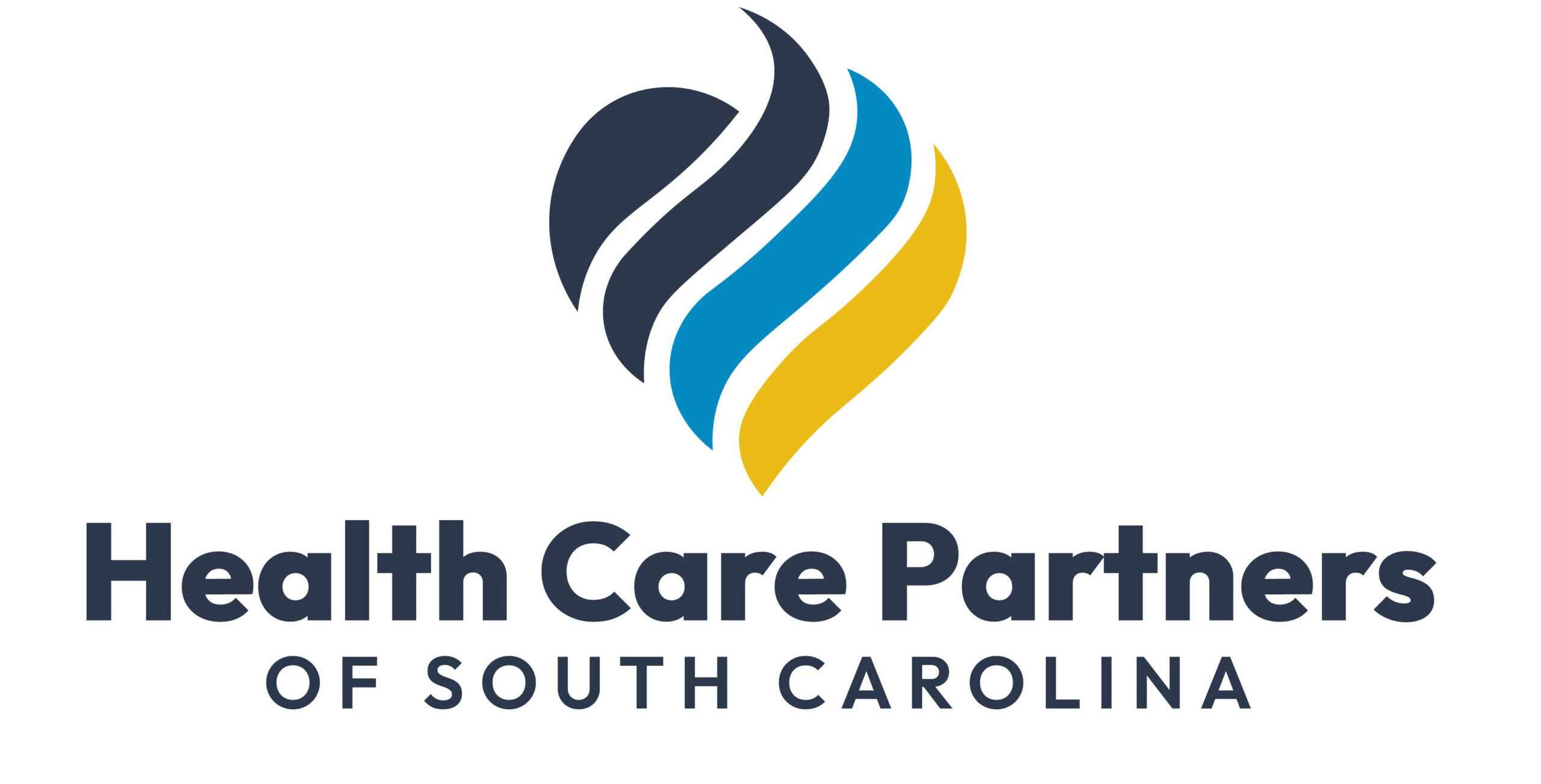It is important to assess your oral health from time to time in order to identify certain dental illnesses and abnormalities early on.
From dental cleanings and routine dental check-ups to X-rays that help identify cavities, infections, and bone abnormalities, patients must be able to access these services easily and affordably.
At HCPSC, our aim is to offer quality dental healthcare to our patients whenever they may need it. If you want to avail dental health services for yourself or any of your family members, register here.
HCPSC Dental Services
At HCPSC, you have access to a number of routine and emergency dental procedures. There are dental care providers who follow all the recommended practices to provide a completely COVID-safe environment to their patients.
Here is an overview of the dental procedures offered at HCPSC
Routine and Emergency Exams
A routine dental exam is a comprehensive evaluation of the oral cavity, teeth, and gums to identify potential issues. During the exam, your dentist will examine the teeth for signs of decay, damage, or discoloration. They will also check the gums for any indications of inflammation, infection, or gum disease.
These routine checkups are important particularly in the wake of COVID-19 to identify any oral health issues you might be experiencing. Your dentist will suggest a treatment plan in order to prevent serious damage to your dental health.
In addition, if you need a more detailed examination of a problem area, such as part of your mouth, you can have a dental X-ray done. These emergency exams are performed to give the patient relief from an acute issue as well as severe pain, infection, or swelling.
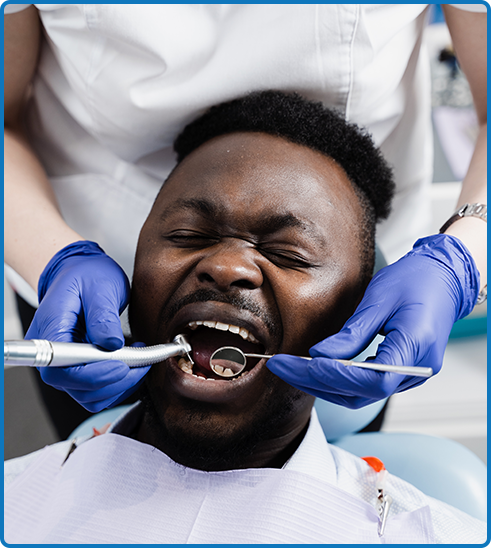
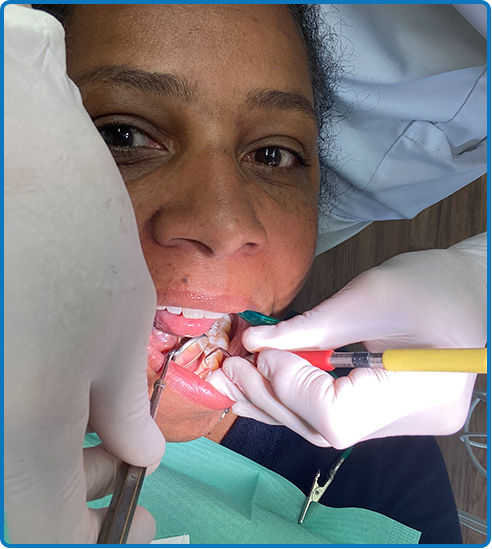
Teeth Cleaning and Dental Sealants
Dental sealants are normally suggested as part of your routine oral care. Children as well as adults may be recommended to get sealants to prevent tooth decay and reduce the risk of caries. If applied properly, dental sealants can last between 5 to 10 years.
At HCPSC, qualified dentists are available to perform this procedure. They will thoroughly clean your teeth first before applying the sealant. The process is completely painless and can be completed in a single visit to the dentist. However, if you have had sealants, you will have to maintain your daily dental hygiene.
It’s recommended to book an appointment with the dentist to determine if you need dental sealants or not.
Fillings
Tooth decay is a prevalent dental issue that affects children and adults worldwide. Research has shown that approximately 90% of adults above the age of 20 have experienced at least one cavity in their lifetime. Adolescents are also at risk of developing tooth decay, with statistics indicating that more than 50% of this age group have had a cavity.
Dentists offer fillings to fill the decayed portion of the tooth. This procedure can also be used to repair cracked and broken teeth that may affect your smile.
Local anesthetic is applied to the area before the procedure can be done. Next, the decayed area is removed, and finally the filling is placed in.
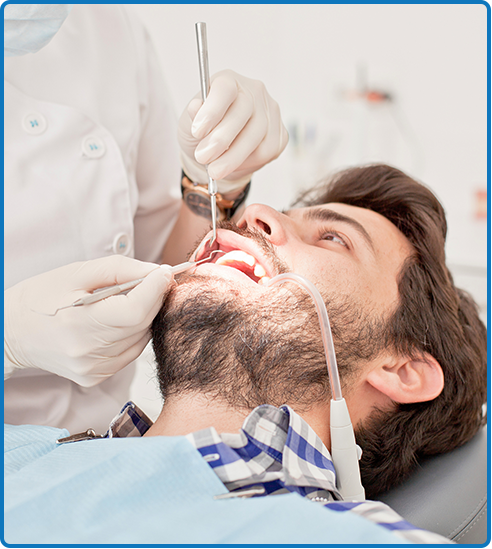
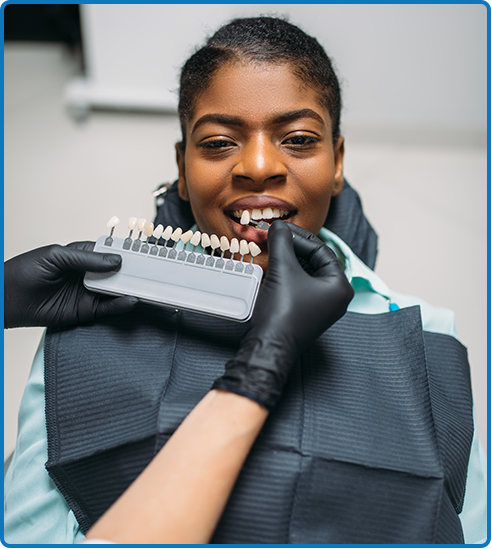
Extractions
In some cases, decayed or damaged teeth cannot be saved through other dental procedures and must be extracted. If you don’t get the affected tooth removed, it may start causing additional problems, including severe pain, difficulty in eating, and neglected oral hygiene.
Tooth extraction is a surgical procedure and requires proper post-operative care. If not done properly, the patient may get post-surgical infection, nerve injury, or delayed healing after an extraction. It is therefore important to get the surgery done from a qualified and experienced dentist.
Dentures and Crowns
Dentures and crowns are prosthetic devices used to strengthen damaged teeth or improve their appearance and alignment. Your dentist may recommend either dentures or crowns seeing the severity of your tooth decay and other dental problems.
In some cases, bridges and implants may also be suggested that eliminate the need for partial or complete dentures.
At HCPSC, the dentists arrange an in-office visit to discuss the possible treatment options and then choose the best solution for your oral problem. You may also choose a procedure depending on its cost and other requirements.
If you want to get in touch with a dentist to discuss your oral problem or want to have your teeth straightened, call 843-510-5113 to get registered with HCPSC right away Or get in touch with us by visiting contact us.
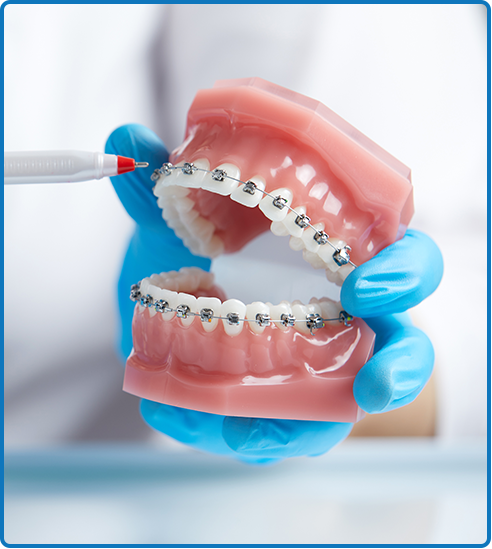
 Call 843-510-5113
Call 843-510-5113
for the current location of our mobile dental services.
Prevalence of Oral Health Conditions
Oral health conditions are quite common all over the world. According to the WHO, more than 2 billion people suffer from dental caries (tooth decay) and about 514 million children are affected by caries of permanent teeth [7].
Among other oral diseases that are prevalent worldwide, gum disease and oral cancer are quite prominent. According to the CDC, about 47% of Americans currently have gum disease, which may be in its early or advanced stage.
Recent research has uncovered a concerning correlation between gum disease and COVID-19 mortality rates. According to the study, individuals with pre-existing gum disease are nine times more likely to die from COVID-19 than those without [2].
Since mental health issues, especially stress and anxiety, have significantly increased after COVID-19, these can also lead to certain oral conditions like gum disease and tooth decay. Moreover, factors like poverty, substance use, and poor diet also contribute to a declining oral health.
These stats clearly indicate a connection between COVID-19 and dental health. They also highlight the importance of maintaining good oral hygiene and getting vaccinated against the virus as soon as possible. It is also advisable to seek professional dental care for the treatment of certain oral conditions, particularly gum disease before it advances into a more serious concern.
Stress and Dental Health Problems

Among the factors that increase the likelihood of getting certain oral health issues, stress has been identified as the leading cause of dental problems during the pandemic.
Stress can cause issues like teeth grinding, which leads to tooth damage and TMJ (temporomandibular joints) syndrome[5].
Some other conditions that may manifest themselves if you feel anxious and overwhelmed by stress include [6];
- Dry mouth
- Canker sores
- Lichen planus
- Burning mouth syndrome
These conditions usually arise when you neglect your dental hygiene due to stress or have bad eating habits.
Stress can also cause a weakened immune system due to the release of cortisol hormone. This is another concerning fact in the wake of COVID-19 because a weakened immune system can lead to an increased risk of getting all types of infections including COVID-19.
People who take antidepressants to manage their depression and stress during COVID-19 often suffer from dry mouth. When there is little saliva available to clear away food debris, there is an increased risk of getting bacterial infections.
How is COVID-19 Linked to Dental Health?
According to a study published in the Journal of Clinical Periodontology, gum disease has been recognized as one of the risk factors for COVID-19 [5].
This means if you have gum disease and you also contract the virus, you may develop COVID-related complications and require hospitalization.
While research is still underway for understanding how COVID-19 might be linked to certain oral health conditions, there are a few oral symptoms that people with COVID-19 have experienced.
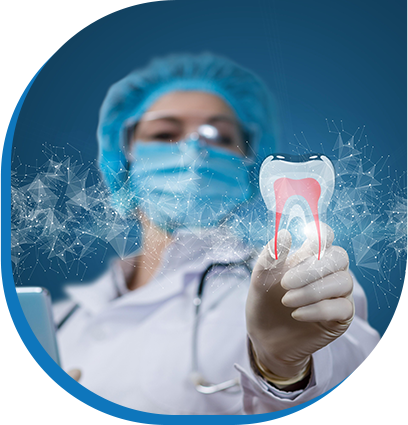
It was found that people with periodontal symptoms have a higher risk of being hospitalized after getting COVID-19 [3].
Moreover, those with painful and bleeding gums are at a high risk of dying from COVID-19. These people may suffer from advanced gum disease, which in most cases is irreversible.
In the study, it was observed that the virus responsible for COVID-19 was present in the periodontal tissue of seven patients who died of the disease. A post-mortem examination revealed the presence of the virus in the gums of these patients, which also raises concerns about the potential oral transmission of the virus [3].
This discovery highlights the fact that if you want to minimize the risk of getting infected with the coronavirus, you must maintain good oral hygiene.
Particularly, if you have gum disease or an early stage of periodontitis, you should visit your dentist regularly to get the condition cured.
It was observed in these studies that loose teeth is a condition that has no connection with COVID-19 severity or mortality.
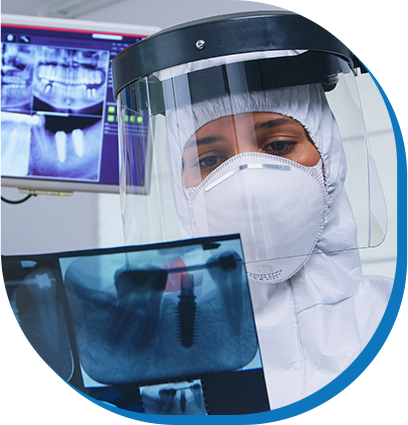
Dental Health After Getting COVID-19
While you may be at a high risk of getting the infection if you have an underlying oral condition, after getting COVID-19 the incidence of oral conditions may be only due to some external factors like stress, intubation, or medication.
However, people with immune disorders may develop oral conditions after getting the infection [3].
Research is still going on to understand if these conditions arise as a result of antibiotic therapy or a compromised immune system in COVID-19 patients.
An increase in the cases of dry mouth (or xerostomia) during the pandemic is probably due to wearing masks all the time [5]. However, more research is needed to fully understand why this condition has particularly seen a rise after COVID-19.
A few studies have also shown a rising trend in the prescription of antibiotics and opioid analgesics in oral health services during the pandemic [4].
The main reason for this increase in prescription is likely due to restrictions and limitations in getting access to dental procedures.
Particularly, individuals who require routine check-ups and treatments for dental ailments may have postponed or neglected their oral health during the pandemic, leading to a rise in dental problems.
Are People With Oral Conditions More Likely to Get COVID-19?
While conditions like tooth decay and gum disease are quite common all over the world, there is no evidence as of yet that may suggest that people with oral conditions are more likely to get the infection.
It is still important to maintain good oral hygiene particularly during the pandemic because if you get the infection, oral conditions, like periodontal disease, are likely to get worse.
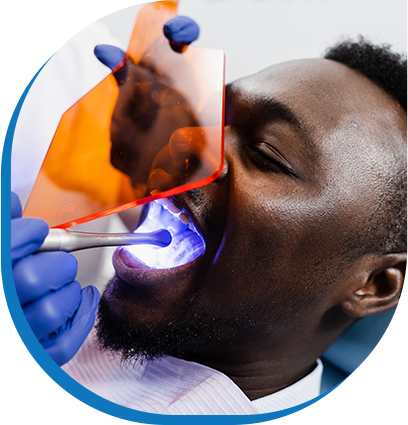
Moreover, people with underlying health issues, such as diabetes, may require hospital care if they get COVID-19, which in turn can increase the likelihood of developing oral health issues.
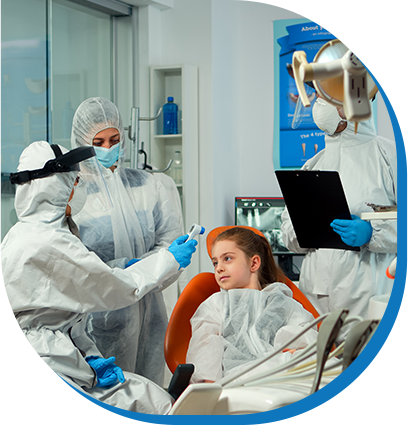
Can You Get COVID-19 in a Dental Care Clinic?
There are several ways in which a person could potentially contract COVID-19 in a dental clinic. The first and most obvious is through direct contact with an infected individual. Since dental procedures require close proximity with the dentist and other staff members, it’s highly likely to contract the disease through infected droplets.
Some clinics where COVID-19 SOPs are not strictly followed may not be completely COVID safe. You can get the infection by merely touching contaminated surfaces, dental instruments, and even doorknobs.
Moreover, there are certain oral care procedures that require the use of aerosol-generating equipment. These may include high-speed drills and ultrasonic scalers. Drills are commonly used to remove decayed portions of teeth and shape them and to remove old fillings.
Non-emergency dental procedures can be postponed during the pandemic in order to prevent the spread of the disease.
Many clinics now offer the facility of telemedicine or tele-consultation. It’s advisable to use this remote service in order to stay safe from the disease.
However, if you require an emergency procedure, particularly for the treatment of serious ailments like periodontal disease, you may visit your dentist.
Here are some conditions that may require emergency treatment in a dental care clinic
- Acute oral infections
- Prolonged bleeding
- Severe dental or orofacial pain
COVID-19 and Children’s Oral Health: What You Need to Know
The pandemic has severely impacted children’s oral health globally. According to research, a decline in children’s oral health status has been observed since the start of the pandemic.
The main reason for the increase in dental health issues in children after COVID-19 is reduced access to preventive care and delayed or canceled dental appointments.
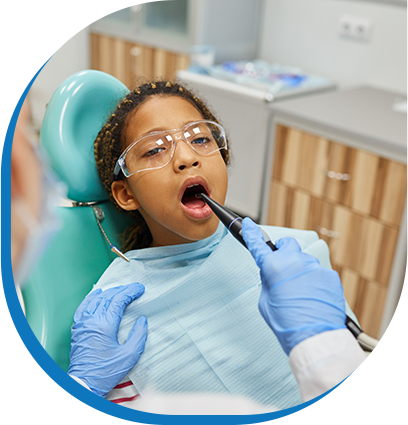
Since most children are asymptomatic or show no symptoms of a COVID-19 infection, pediatric dentists are at a high risk of getting infected with the coronavirus. Because of this reason, restrictions were imposed to prevent the spread of the virus through direct transmission in dental care clinics.
However, because of these preventive measures, dental cases among the pediatric population have increased significantly.
Poor dental health in children during the pandemic has also been attributed to poor oral hygiene, increased intake of sweetened foods and drinks, and neglected toothbrushing.
As with many other viral infections, COVID-19 can have several oral manifestations in children as well as adults. While children are mostly asymptomatic, in some rare cases they may experience ulcers, erosions, and halitosis after getting the infection.
If, because of any reason, children may experience persistent aching teeth and bleeding gums, it indicates not just poor oral hygiene, but also some underlying serious dental issue that requires immediate professional dental care.
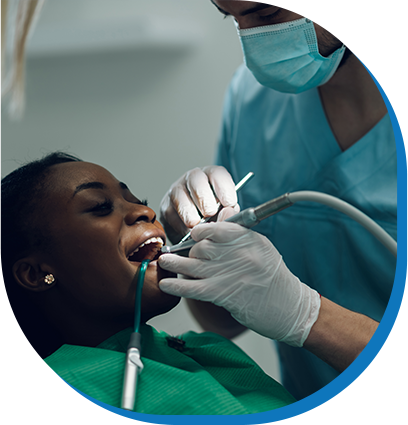
How to Prevent Dental Complications During COVID-19?
It is imperative to maintain a good oral health particularly during COVID-19 in order to prevent the complications that may arise due to certain oral conditions.
Here are a few recommendations by the WHO that can significantly prevent dental caries and gum disease in the context of COVID-19.
- Eat a well-balanced diet that includes fruits and vegetables and limit intake of sugars,particularly carbonated fizzy drinks.
- Stay away from tobacco at all costs and reduce consumption of alcohol.
- Brush your teeth twice a day using a fluoride toothpaste and floss daily. The best time to floss is before going to bed at night.
In addition, you must seek dental care immediately if you are experiencing signs and symptoms of gum disease or periodontal disease.
